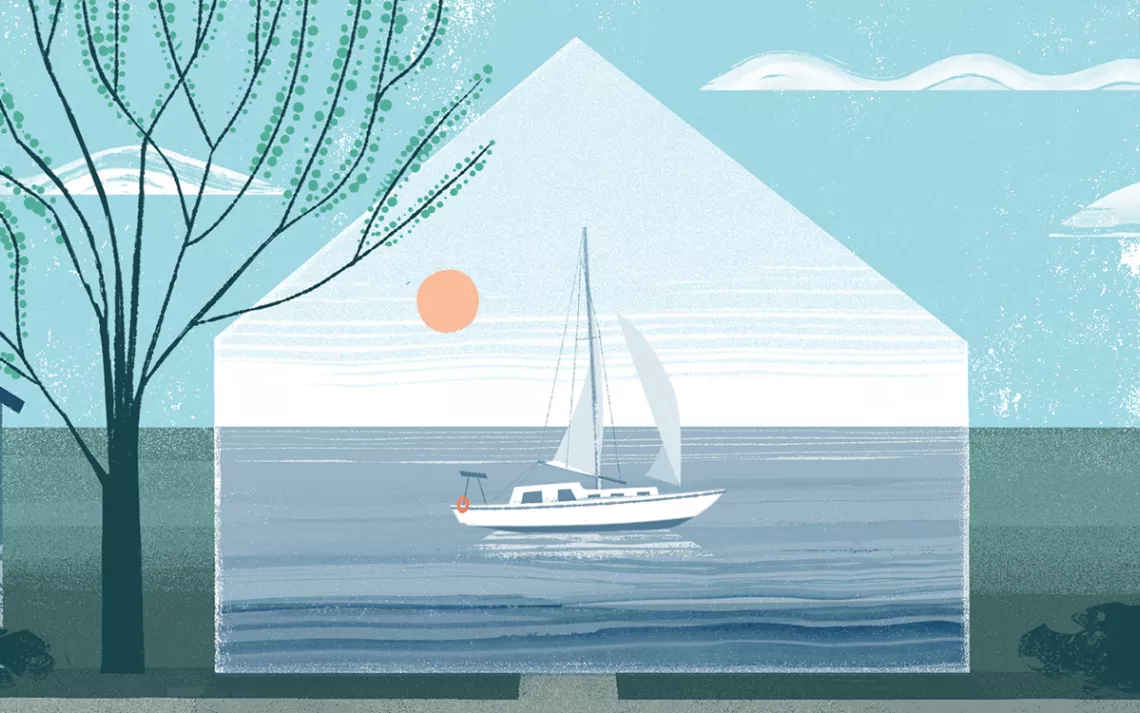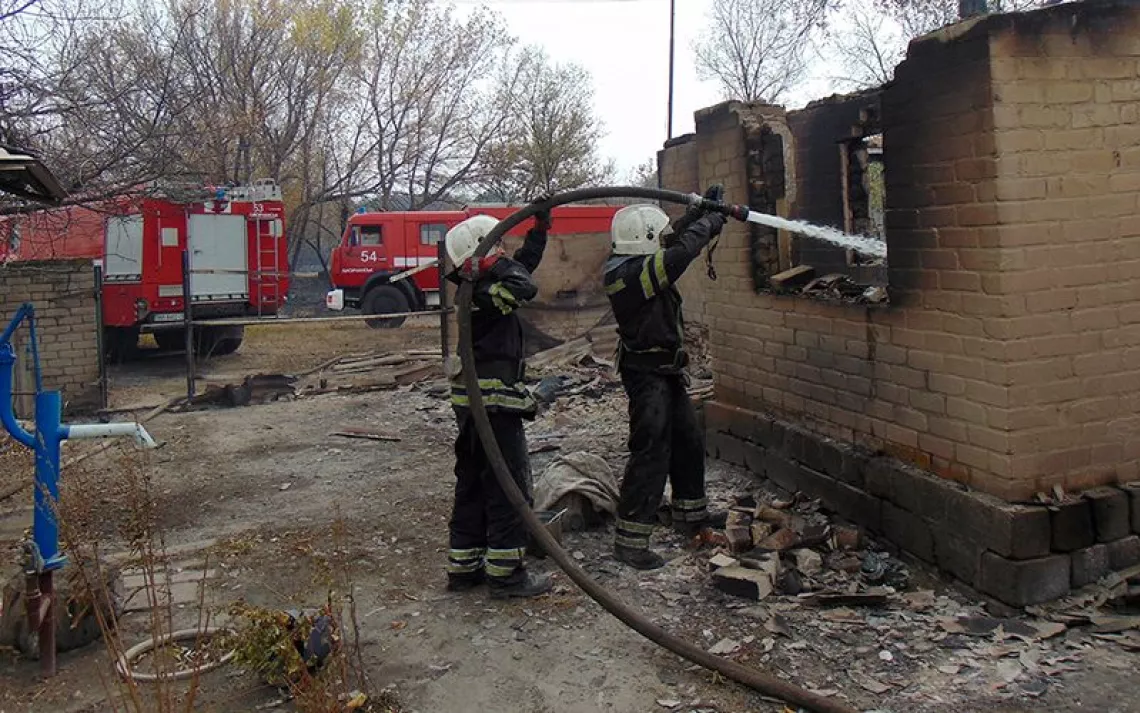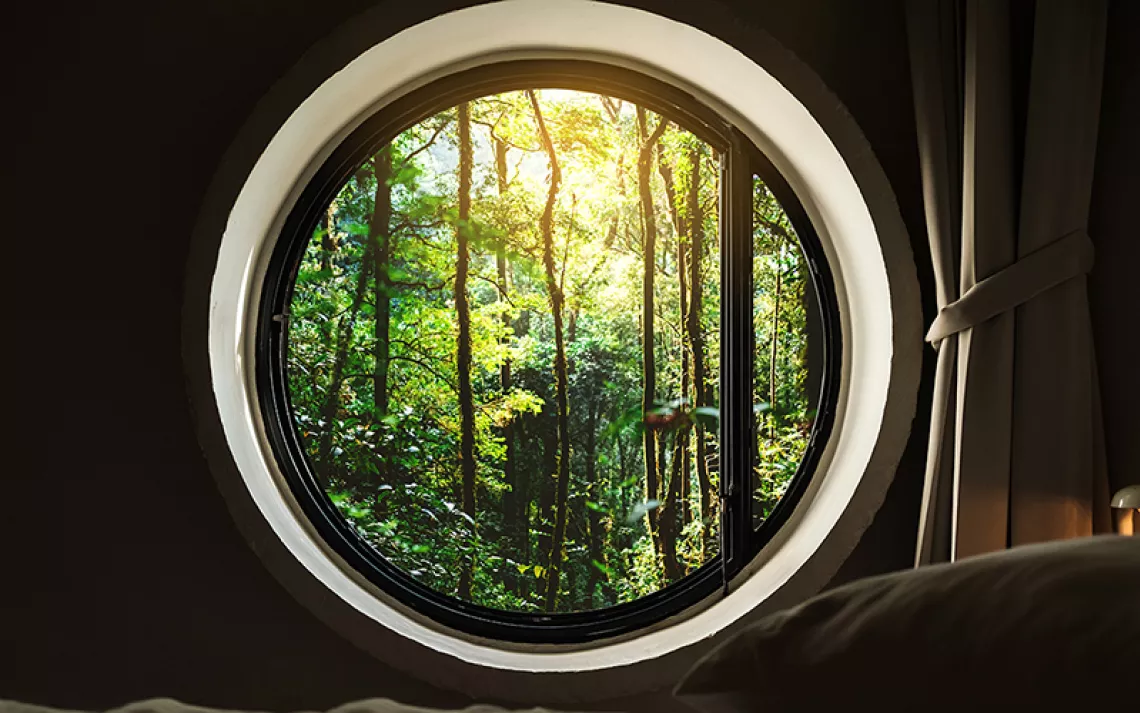Quarantine Tips From a Sailor
What sailing taught me about sheltering in place

Illustration by Sam Kalda
Wes and I moved aboard Argo, a 32-foot, half-century-old sloop, when most of our friends were having babies and getting serious about their retirement accounts. We were inspired by the classic sailing memoirs of 50 years earlier, but we only knew how to sail dinghies. We began learning French and how to mix epoxy, sew cushions, and mount solar panels, all while living on a budget one sailor friend referred to as "the smell of an oily rag." The plan was to fix up the sloop and sail indefinitely as vagabonds.
On long passages, we sailed continuously, trading off three-hour night watches. We rationed our food. The oven's thermometer was out of whack, so I cooked by the feel of the heat coming out when I opened the door. A cake was a triumph no matter what it looked like.
How virtuous we became, unexpectedly! No one told us to slow down with the booze, but we instinctively did. We could have watched movies endlessly—sailors always share hard drives—but time seemed too precious. I was always sad that I could not share the greatest experiences of being at sea. How Argo rushed through the night close-hauled, under an impossible number of stars, slicing through foam that sparkled green with phosphorescence.
Not that those were always the best of times. One dire night, as we were sailing up the coast of Australia, the mainsail tore, the jib tangled, and the self-steering system fell off the boat—all at once. It laid bare the deficits in our seamanship in an awful way. But we would tell stories about it forever. Assuming we made it.
I practiced not obsessing about the worst-case scenario, even though all around me were reminders of it: life raft, go bags, satellite beacon, harnesses (worn whenever outside the cabin), and the endless rolling sea itself.
I amused myself by writing letters to friends, fixing a pump or a cabinet latch. I chuckled in my bobbing bunk as I learned the 18th-century naughty words in Les Liaisons Dangereuses. Dévergondage: debauchery, wantonness. We spoke French over an evening ritual of cheese on Wasa, with no one there to correct our errors: Manger tout le fromage—c'est un dévergondage!
The shortwave radio brought weather and news, reassuring us that other people really did exist when our surroundings suggested the contrary. We kept it in a Tupperware to protect it from any waves. Does that seem too flimsy? You're probably right. At some point, there is a ceremonial nature to our precautions against unseen threats.
For two years we sailed—from Australia to New Caledonia, Vanuatu, and New Zealand, at a pace comparable to a brisk walk, until I found the cancer in my breast that cut short our voyage.
Now we are once again hunkered down—this time in Sacramento, California, in the midst of a pandemic. Being back on land required an adjustment, but now I find myself surprisingly well equipped for lockdown.
We have infinitely more abundance here, in every category except sky and sea. True, I am still rationing chocolate, but every week I get a box of fresh vegetables. Now that I know what it's like to live so close to the bone, I know how very far I am from it.
Most luxurious, we are connected. Friends, family, and strangers—we are sharing the little ways we have learned to get along. Paranoia is as contagious as the virus, but so is joy.
Was I insane to feel lucky at sea, caged as I was? It was an anxious time, to be sure. But whenever an albatross or a pod of dolphins came by, we stopped everything to watch. I felt a bit of that today when I saw that a squirrel was back for her daily meditation on how to crack my bird feeder. That's a feeling that never requires rationing.
This article appeared in the July/August 2020 edition with the headline "Sheltering Afloat."
 The Magazine of The Sierra Club
The Magazine of The Sierra Club



